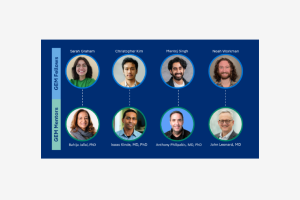
This June, JHTV selected the inaugural cohort of the Graduate Fellowship for Entrepreneurship in Medicine (GEM). This two-year fellowship is designed to equip future leaders with the skills, network, and mentorship needed to drive impact through scientific innovation, translation, and commercialization.
The GEM Fellowship was established through a generous gift from alumnus Lou Forster, who earned his bachelor’s from Johns Hopkins University in 1982 and his master’s from the School of Advanced International Studies in 1983. Forster is a partner at the financial technology-focused venture capital firm Green Visor Capital and the former chair of the Johns Hopkins University Board of Trustees. This fellowship includes two years of full financial support, curated technology commercialization programming, mentorship from industry experts, and exclusive networking opportunities.
The four outstanding fellows were selected from dozens of highly qualified applicants and represent diverse research interests, departments, and doctoral programs.
As part of the curriculum, fellows are personally matched with life science industry leaders – venture-backed founders, investors, and faculty who started as PhD or MD students – to gain insight on the commercialization process and one-on-one guidance tailored to each student’s project/professional goals.
GEM Fellowship Cohort 2025
Sarah Graham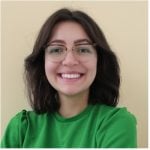
Sarah Graham is a PhD candidate in cellular and molecular medicine at Johns Hopkins University, specializing in computational biology, genomics, and digital pathology. She has actively participated in commercialization initiatives such as JHTV’s Commercialization Academy and startup programs like Nucleate, with a commitment to bridging scientific innovation and healthcare delivery. Ultimately, she strives to transform research discoveries into impactful diagnostic tools that improve patient outcomes.
Graham’s research in the lab of Laura Wood, MD, PhD, uses advanced genomic and 3D tissue analysis to identify biomarkers that distinguish low-risk from high-risk precancerous pancreatic lesions. Her goal is to develop these biomarkers into early detection diagnostics that can transform outcomes for pancreatic cancer patients.
When asked about the GEM fellowship, Graham said, “I’m most excited to apply the commercialization pipeline to my own research. While I have experience evaluating and supporting commercialization efforts, this will be my first opportunity to directly translate my own scientific discoveries into real-world impact.”
 Graham’s GEM Mentor: Bahija Jallal, PhD; CEO, Immunocore
Graham’s GEM Mentor: Bahija Jallal, PhD; CEO, Immunocore
Graham will be mentored by Bahija Jallal, PhD. Jallal is an experienced biopharmaceutical executive and scientist who has held prominent roles at major biotech companies, notably serving as president of MedImmune, the global biologics research and development arm of AstraZeneca. In 2019, she became CEO of Immunocore, a pioneering biotechnology company specializing in T-cell receptor-based therapies for cancer and other diseases with unaddressed therapeutic needs. Jallal earned a PhD in physiology from Université de Paris VI in France and completed a postdoctoral fellowship at the Max-Planck Institute for Biochemistry in Germany.
Christopher Kim
Christopher Kim is a PhD candidate in molecular biology and genetics at Johns Hopkins University who brings a diverse background in synthetic organic chemistry, laboratory research, and corporate strategy as a former M&A Valuation Associate at PricewaterhouseCoopers. After furthering his technical expertise as a research technician at Columbia University, he began his graduate studies with a passion for bridging scientific discovery and technology commercialization. His long-term goal is to lead ventures that move cutting-edge therapeutics from the lab to real-world clinical applications.
When it comes to the GEM experience, Kim said, “I am most excited for the one-on-one mentorship from biotech founders, which will directly support [his] goal of translating scientific discoveries into therapeutic platforms.”
In the lab of Jeff Coller, PhD, Christopher investigates how the RNA-binding protein PABPC1 stimulates mRNA translation by directly interacting with the ribosome, challenging existing models of translation regulation. His work aims to harness these mechanistic insights to improve and develop novel mRNA-based therapeutics for genetic and oncological diseases.
 Kim’s GEM Mentor: Isaac Kinde, MD, PhD; VP Technology Assessment, Exact Sciences
Kim’s GEM Mentor: Isaac Kinde, MD, PhD; VP Technology Assessment, Exact Sciences
During the GEM fellowship, Kim will receive personalized mentorship from Isaac Kinde, MD, PhD. Kinde is a medical scientist, entrepreneur, and inventor, best known for his pioneering work in the fields of liquid biopsy and cancer genomics. He was a co-founder and the Head of Research and Innovation of Thrive Earlier Detection, a biotechnology company developing blood tests to enable earlier detection of multiple types of cancer. In 2021, Thrive was acquired by Exact Sciences, where Kinde continues to play a key role in advancing cancer detection technologies as VP Technology Assessment. Kinde earned his MD and PhD from Johns Hopkins University, where his research focused on molecular biology and the early detection of cancer through novel genomic technologies.
Mantej Singh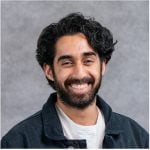
Mantej Singh is a PhD candidate in biomedical engineering at Johns Hopkins University, specializing in computational optics, medical device innovation, and AI-powered diagnostics. With hands-on startup experience, including co-founding ventures and participating in accelerators, he is dedicated to developing affordable, scalable medical technologies for global health. Singh’s work is driven by a belief in practical, patient-centered innovation that bridges engineering and real-world impact.
In the lab of Nicholas Durr, PhD, Singh develops ultra-compact optical imaging systems and machine learning tools to enable accessible, point-of-care diagnostics for conditions such as sepsis and to enhance clinical imaging procedures. His work aims to democratize advanced medical diagnostics through algorithmic and engineering advances, especially in low-resource settings.
When asked what aspect of GEM he most looked forward to, Singh said, “I’m eager to learn how to turn bench-top optical imaging research into bedside devices that truly improve patient care.”
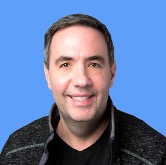 Singh’s GEM Mentor: Anthony Philippakis, MD, PhD; General Partner, Google Ventures
Singh’s GEM Mentor: Anthony Philippakis, MD, PhD; General Partner, Google Ventures
Singh will receive mentorship from Anthony Philippakis, MD, PhD. A cardiologist and data scientist, in addition to biotechnology executive, Philippakis is committed to bridging clinical practice with advanced computational genomics tools. He is a partner at Google Ventures and previously served as the Chief Data Officer at the Broad Institute of MIT and Harvard. Philippakis trained as both a cardiologist and a mathematician, earning his MD and a PhD in biophysics from Harvard University before completing his residency and a fellowship in Cardiovascular Medicine at Brigham and Women’s Hospital.
Noah Workman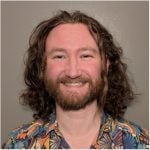
Noah Workman is a PhD candidate in human genetics and genomics at Johns Hopkins University with a strong background in genome editing technologies and translational science. He is committed to applying innovative research to real-world impact, combining scientific expertise with entrepreneurial ambition. Worman has co-authored patents for genome editing tools and is interested in entrepreneurship, biotechnology, and industry careers that enable him to advance molecular technologies toward patient care.
Workman said, “I’m most excited about the one-on-one mentorship and hands-on training from industry experts.”
Workman’s research, in the lab of Greg Newby, PhD, focuses on engineering optimized synthetic promoters to enhance the efficiency of prime editing, a cutting-edge genome editing technology. By systematically mapping and improving regulatory DNA sequences, he aims to increase the safety and effectiveness of gene therapies for a wide range of genetic diseases.
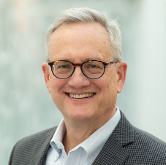 Workman’s GEM Mentor: John Leonard, MD; President and CEO, Intellia Therapeutics
Workman’s GEM Mentor: John Leonard, MD; President and CEO, Intellia Therapeutics
To help advance his goal of contributing to the next generation of safe and effective gene therapies, Workman will receive mentorship from John Leonard, MD. Leonard is an experienced innovator renowned for his leadership in advancing genome-editing therapeutics. A physician-scientist and biotechnology executive, Leonard previously played pivotal roles at Abbott Laboratories, leading to the approval and commercialization of several therapies. As the President and CEO of Intellia Therapeutics, Leonard spearheads the development of CRISPR-based gene editing treatments for a wide array of genetic diseases, achieving significant scientific milestones such as the first clinical data for in vivo CRISPR genome editing in humans. Leonard received his MD from Johns Hopkins University and completed his medical training at Stanford and the NIH.